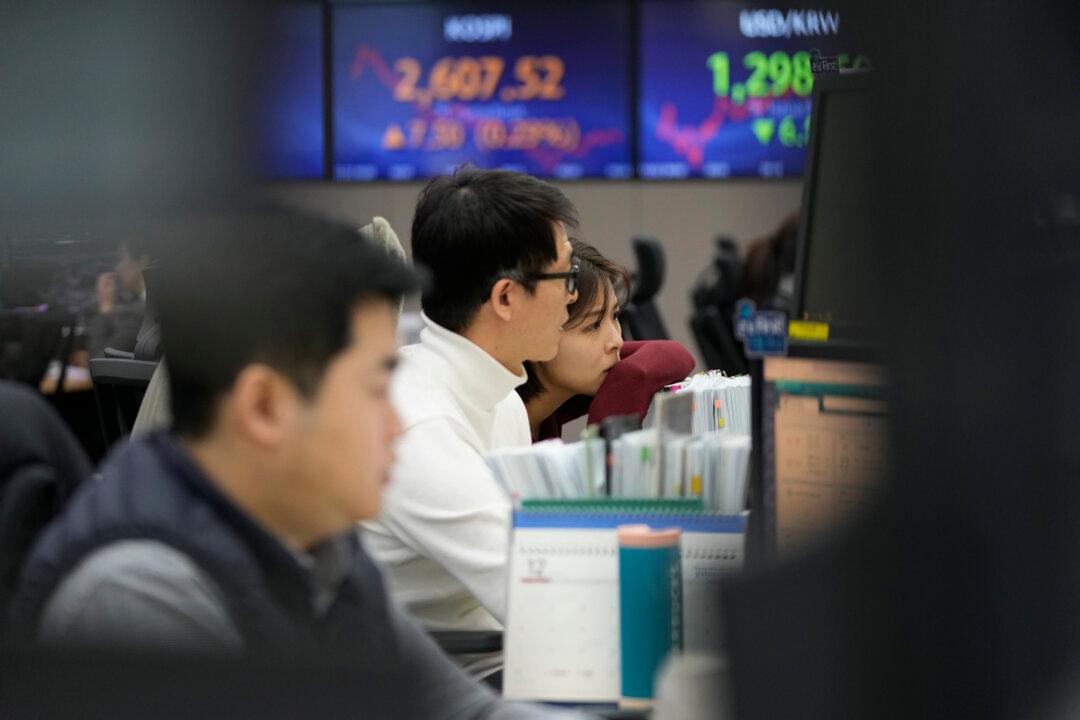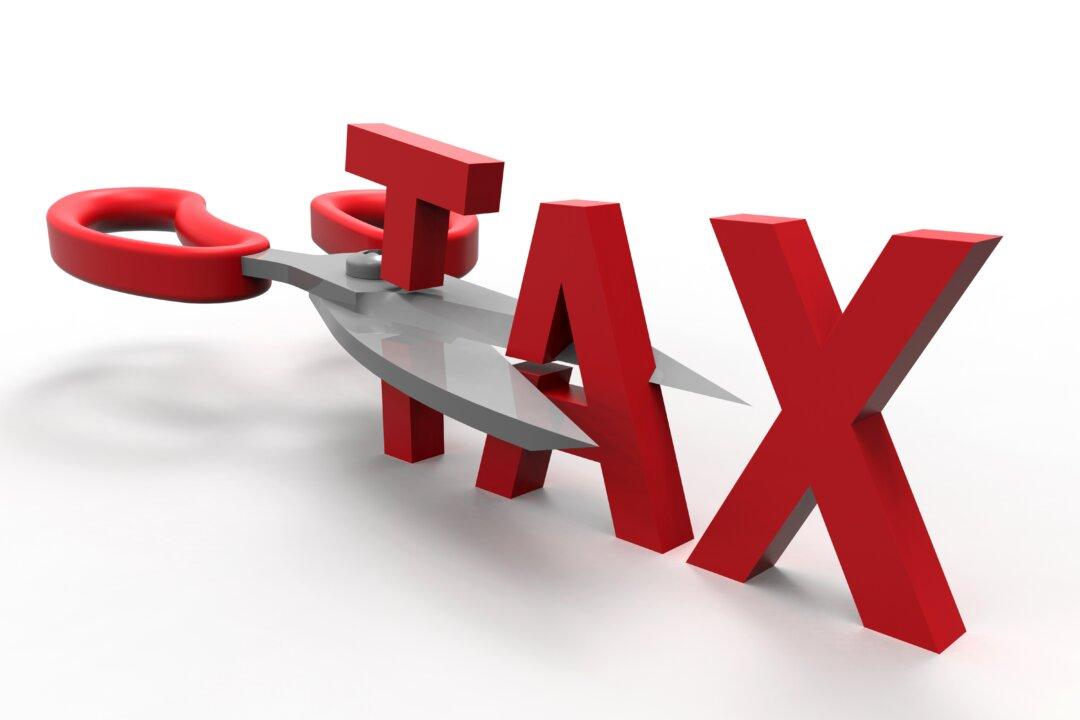BANGKOK—Shares are mostly lower in Europe and Asia after several strong profit reports helped Wall Street claw back most of its sharp losses from day before.
Germany’s DAX shed 0.2 percent to 16,658.43 and the CAC 40 in Paris edged 0.1 percent lower to 7,562.91. Britain’s FTSE 100 also was down 0.1 percent, at 7,691.25.





